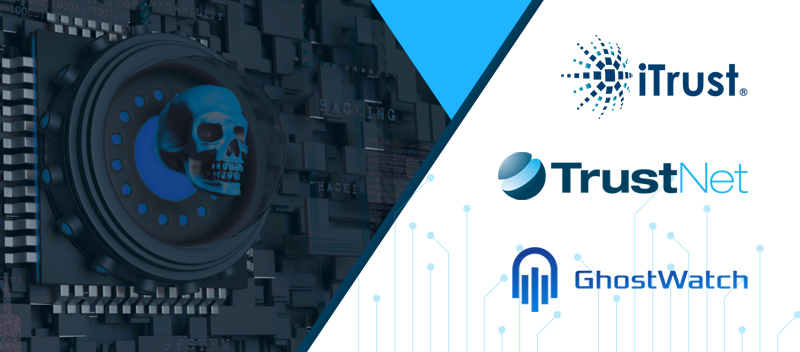Cybersecurity and Business Reputation: An Indivisible Duo

Robust cybersecurity not only safeguards a business’s operational and financial data but also plays a pivotal role in preserving its reputation. Conversely, a company’s reputation is a valuable asset influencing customer loyalty, stakeholder trust, and competitive positioning.
We’ll explore how robust security measures are crucial in maintaining and enhancing a brand’s integrity. We’ll also examine the potential repercussions of cybersecurity breaches on a business’s reputation and discuss strategies for proactive cybersecurity that can help mitigate these risks.
Understanding Cybersecurity and Its Importance for Business Reputation
Cybersecurity refers to the measures taken to protect Internet-connected systems, including hardware, software, and data, from cyber threats. These threats can take many forms, from hackers seeking to steal sensitive information to malware that disrupts business operations.
The significance of cybersecurity for businesses is multi-faceted. First, it protects valuable business assets, including customer information, financial data, and intellectual property. Failure to protect these assets can lead to significant financial losses, legal repercussions, and damage to a company’s reputation.
Moreover, robust cybersecurity practices ensure business continuity. By preventing or minimizing cyber-attacks, companies can ensure their operations continue smoothly.
Most importantly, effective cybersecurity is crucial for maintaining and enhancing business reputation. A company’s reputation is one of its most valuable assets. It shapes how customers, employees, and stakeholders perceive the company and can directly impact its bottom line.
However, a cybersecurity breach can severely damage a company’s reputation. Such incidents can lead to loss of customer trust, negative media coverage, and even regulatory fines. Customers may hesitate to do business with a company they perceive as insecure, while potential partners may think twice about forming alliances.
The Impact of Cybersecurity Breaches on Business Reputation
Cybersecurity breaches can have a devastating impact on a business’s reputation. The fallout from such incidents can be immediate and far-reaching. This affects everything from customer trust to market value.
A study revealed that the most significant and noticeable breaches could lead to a 5-9% decline in reputational intangible capital. This highlights the potential long-term impact of cybersecurity breaches on a company’s reputation.
Moreover, small businesses are particularly vulnerable to the potentially catastrophic effects of cybersecurity breaches. A data breach can irreparably harm a small business’s reputation, especially those not financially stable. In some cases, nearly 60% of companies affected by a data breach will likely go out of business due to reputational damage.
One high-profile example is the 2013 Target data breach, where the credit and debit card information and records of up to 110 million customers were stolen. The breach led to a significant loss of customer trust and decreased sales, ultimately costing the company over $200 million.
The Role of Cybersecurity in Building and Maintaining Business Reputation
Trust forms the bedrock of any business-customer relationship. Customers need to feel confident that their personal and financial information is secure when they engage with a business. Any breach of this trust, such as through a data leak or cyberattack, can damage a company’s reputation and potentially lead to loss of business.
Cybersecurity plays a pivotal role in building this trust. A business can demonstrate its commitment to protecting customer data by implementing comprehensive and proactive security measures. This can attract new customers and foster loyalty among existing ones.
Moreover, strong cybersecurity practices can also build trust with investors. In today’s digitized world, investors are increasingly aware of the risks associated with cyber threats. They are likely to view companies with robust cybersecurity measures more favorably.
Best Practices for Enhancing Cybersecurity and Protecting Business Reputation
Enhancing cybersecurity and protecting a business’s reputation requires a multi-faceted approach encompassing various best practices. Here are some of the most effective strategies:
- Employee Training: Employees are often the first line of defense against cyber threats. Therefore, it’s essential to train them in security principles. This includes teaching them how to recognize suspicious emails or links, the importance of using strong passwords, and the need to avoid sharing sensitive information.
- Protect Information and Networks: Businesses must protect their information, computers, and networks from cyber-attacks. This can be achieved by installing antivirus software, regularly updating systems and software, and using firewalls and encryption for data protection.
- Regular Updates and Backups: Keeping all software and systems updated is crucial as updates often include patches for known security vulnerabilities3. Regularly backing up data can also help businesses recover quickly during a breach.
- Enforce Security Policies: Businesses should have clear, enforceable security policies. These policies should cover areas like acceptable use of company systems, incident reporting, and consequences for policy violations.
- Invest in Cybersecurity Measures: Investing in robust cybersecurity measures, such as unsecured network protection and comprehensive IT services with experts like TrustNet, can further enhance a business’s security posture.
Good cybersecurity practices are not just about preventing attacks; they’re about safeguarding a company’s reputation in an increasingly digital world.
Conclusion
As cyber threats evolve, trust from customers, partners, and stakeholders depends on the assurance of secure data. A breach risks sensitive information and harms a company’s public standing.
As businesses navigate the digital landscape, prioritizing cybersecurity measures is crucial—it’s the key to protecting and boosting a business’s reputation in our connected and data-driven world.
cybersecurity services. Contact us today.




